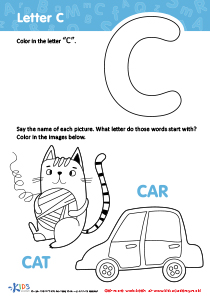2D and 3D Shapes Quizzes for 7-Year-Olds
2 results
2 filtered results
Clear all filters2 filtered results
-
From - To
Unlock the world of geometry with our engaging Interactive Assessment Quizzes on 2D and 3D Shapes, meticulously crafted for 7-Year-Olds! Dive into a fun-filled journey where children explore the fascinating realm of shapes, distinguishing between flat 2D figures and solid 3D forms. Tailored to spark the curiosity of young minds, these quizzes offer instant feedback, reinforcing knowledge and encouraging a deeper understanding. Perfect for mastering key concepts, our quizzes make learning about 2D and 3D Shapes enjoyable and rewarding. Watch as your 7-Year-Old becomes a geometry enthusiast, one interactive question at a time!
In today's fast-evolving educational landscape, it's crucial to employ methods that not only engage young minds but also solidify foundational concepts in a fun and interactive manner. Among these foundational concepts, understanding geometric figures is paramount, especially for children around the age of 7. Our interactive quizzes on 2D and 3D Shapes for 7-Year-Olds are designed to cater to this very need, ensuring that children grasp these essential mathematical concepts effectively while having a great time.
The educational journey of understanding shapes begins with distinguishing between 2D (two-dimensional) and 3D (three-dimensional) shapes. This distinction is not just a cornerstone of mathematical knowledge but also a key component of spatial awareness and problem-solving skills. Our quizzes make this learning process engaging and accessible for 7-year-olds, using a variety of colorful visuals, relatable examples, and interactive elements that capture children's attention and stimulate their curiosity.
One of the main advantages of our interactive quizzes on 2D and 3D Shapes for 7-Year-Olds is their adaptability to individual learning paces. Unlike traditional classroom settings where the pace can be too fast for some children and too slow for others, our quizzes allow children to learn at their own speed, ensuring that they fully comprehend each concept before moving on to the next. This personalized learning experience is crucial at this developmental stage, where building confidence in one's abilities is as important as acquiring new knowledge.
Moreover, these quizzes incorporate a variety of question types, from multiple-choice to drag-and-drop, which not only helps children solidify their understanding of 2D and 3D shapes but also enhances their cognitive skills, such as memory and logical reasoning. For instance, when children classify shapes or identify properties such as the number of faces on a 3D shape or the number of edges on a 2D shape, they're not just memorizing facts; they're actively engaging in problem-solving and critical thinking.
Another significant benefit is the immediate feedback provided by our interactive quizzes. When children answer questions about 2D and 3D shapes, they instantly learn whether their answers are correct or not, along with an explanation. This instant feedback loop is vital for reinforcing correct information and promptly addressing misconceptions, thereby facilitating a deeper understanding and retention of the material.
Furthermore, our quizzes are designed to make learning about 2D and 3D shapes enjoyable. By incorporating elements of gamification, such as points, badges, and leaderboards, children are motivated to continue learning and improving. This element of fun ensures that children associate learning with positive emotions, fostering a lifelong love for education.
In conclusion, our interactive quizzes on 2D and 3D Shapes for 7-Year-Olds are more than just educational tools; they are gateways to a world where learning is engaging, personalized, and, most importantly, fun. By integrating these quizzes into their study routine, children not only master the essential concepts of geometry but also develop critical thinking, problem-solving skills, and a positive attitude towards learning that will benefit them throughout their academic journey and beyond.












